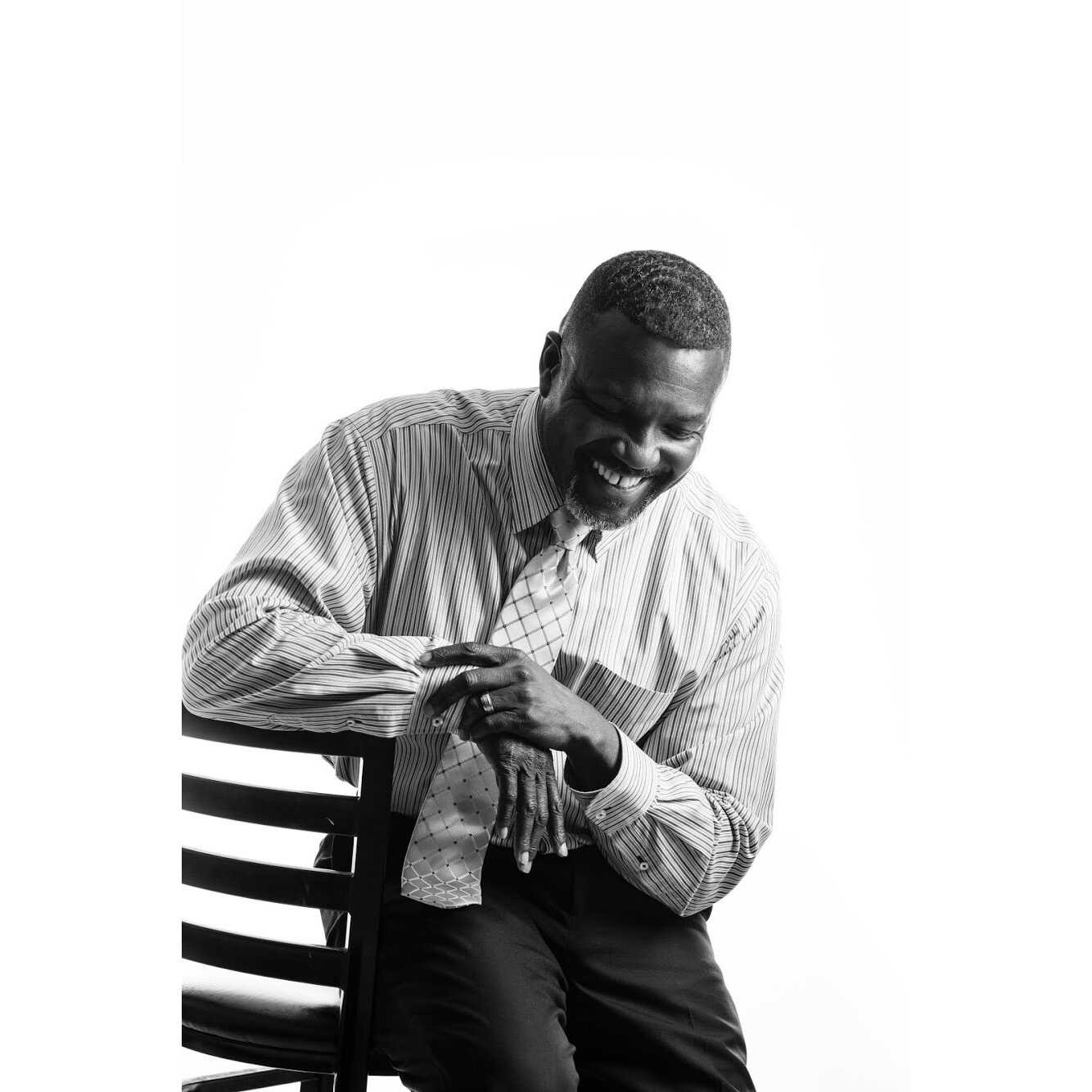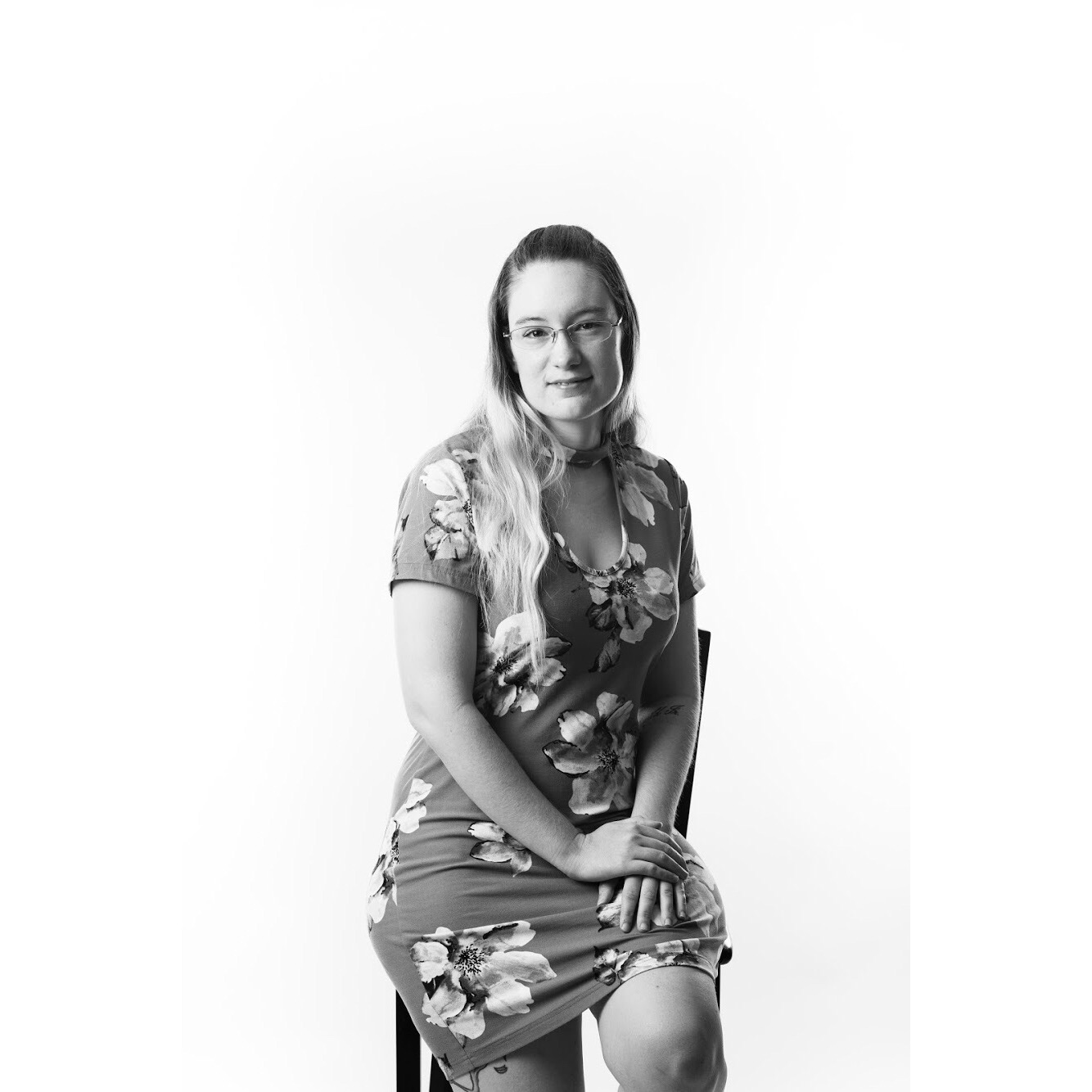Branch: Marine Corps
Duty: Aviation Ordnance Division Chief
By Emily Wunderlich
Milton White, 53, will tell you that he lives a dream.
“All of my dreams aren’t good dreams,” he says. “Some days they’re nightmares — literally.
“But tomorrow will always come.”
White’s story — although marked by tragedy — is one of selflessness and resilience.
It begins on his grandparents’ pig farm on the outer banks of North Carolina and leads to the Military and Veterans Success Center at USF St. Petersburg.
“I wanted to do everything that I most possibly could do to get off of that pig farm,” he said. “I worked very, very hard to save the little bit of money that I could put together to go through college.”
But after what he called “a series of circumstances,” White ended up in the Marine Corps instead.
“Literally, the Marine recruiter almost ran over me on my way running to class, frantic about everything that was going on in my life at that time,” he said.
It was 1983. White was the first in his family to attend a university, where he was studying criminal justice at North Carolina State. The love of his life, Alison House, was one year his senior.
The only problem? She was white, and they were about to start a family.
“I grew up in a small Southern community where interracial relationships were frowned upon,” he said. “That didn’t go well for either of our households.”
So the Marine recruiter offered White a ride to class and waited until he got out.
“I don’t know what I told him in the car … But something that I said sparked his interest, so he stayed,” White said. “We had a very good conversation about what my goals were, and I talked to him about my dad being a Marine.”
When White was 7, his dad was killed in a car accident while home on leave. So after college, he planned to follow in his footsteps by becoming a Marine himself.
His ultimate goal was to become a military police officer before returning to North Carolina as a state highway patrolman.
“I knew the road I wanted to be on, and at that point in time — about to be a father — it was like ‘I have to do something,’” White said.
The recruiter suggested that as an interracial couple, White and his girlfriend could move to California, where they would be surrounded by “like-minded” people and live “without so much conflict.”
He even offered White a bonus because of the year he spent in college. With that, on top of the benefits and the steady income, White was convinced “it was time to go in the service.”
And so it was. White enlisted, and after boot camp, he married House and they moved across the country.
“Everything was going well,” he said — until the couple’s second wedding anniversary.
White was deployed for training in Yuma, Arizona, when his wife came to visit for the weekend.
“On the way back, the car broke down,” he said. “As a result of that … Someone came along on the pretense of trying to help her, and they abducted and killed her.”
The suspect was part of the search party the evening House went missing.
“When we were searching for her, I actually talked to him directly, and he learned that we were an interracial couple,” White said. “That upset him to the point that he decided to kill her, based on what his beliefs were.”
Destroyed, White said his wife’s murder was part of the reason he ended up serving for over 25 years.
“The one thing that I never thought about during that time was getting out of the Marine Corps,” he said.
The Marines made sure everything was taken care of. They made funeral arrangements, they flew White back to North Carolina to bury his wife, and they brought an entourage of uniformed service members to escort them.
“After that incident, first I wanted to be able to pay back … everything that was done for me at that time, to some extent,” White said.
But that wasn’t easy when White had to relive the details of his wife’s death almost every day until the case was closed.
“There was always a new commission or new task force or something that was picking it up and coming to talk to me and just keeping it alive for those five years, which made it really, really hard for me,” he said.
So he found motivation in the work he did.
“I became a good Marine because I didn’t want to think about life outside of the Marine Corps,” he said.
Embedded in the Corps
In 1989, White was transferred to Cherry Point, North Carolina, where his family was able to support him as a single parent. It was there that he met his second wife and had two daughters, Alycya and Therryssa.
“I’m a ‘y’ guy,” he said. “Something has to dip below the line.”
The couple was married for four years before White’s constant deployments caused a rift in their marriage.
“I still suffered from what happened in my first marriage,” he said. To White, that relationship never really ended.
“The way that I responded to all that was to work, work, work. That never changed,” he said. “I worked too much and I deployed too much and was gone all the time.”
At the end of the first Gulf War, White was deployed to a recovery task force that cleaned up the bodies of a convoy headed to Baghdad.
“There was a lot of death there,” he said.
An instructor at the time, White said he volunteered for the job without knowing what it entailed.
“That really played into the depression that I was already in because of the death of my first wife,” he said. “It kind of stuck with me for a long time.”
After that, he received orders from the schoolhouse to go to Okinawa, Japan, where he was introduced to helicopters. Having worked with jets for most of his career, White said he prefers them because no matter where they went, they always had to have a runway.
“If there’s a runway … that means that you’re probably not going to be sleeping in the mud and the dirt,” he said.
Helicopters, however, can land anywhere — as long as there is a big enough clearing.
“I managed to somehow find myself sleeping in the mud a lot,” he said.
In its three years in Okinawa, White’s unit completed humanitarian missions and responded to local conflicts in the Pacific.
Upon his return to the U.S. in 1996, White spent three years in Camp Pendleton, California, before transferring to Marine Corps Air Station New River in North Carolina.
Like many Americans, he remembers where he was on 9/11. His unit had just returned from another training deployment in Yuma.
“I’d been in the Corps for quite some time at that point, and I planned on getting out,” he said. “After that day, we packed up everything and went back. There was no going home for us.”
Making of a leader
White’s most meaningful work, he says, began in 2003 when he became an equal opportunity adviser stationed in Hawaii. His job was to investigate complaints of sexual assault, harassment and discrimination.
“I learned so much about myself, about others, and what causes folks to do things when it comes to their socialization processes,” he said.
Working directly under the commander of his base, White was deployed to Djibouti, Africa, and traveled to Iraq, Iran and Afghanistan.
When White became an equal opportunity instructor in 2006, he started training other EOA’s in working for commanders, doing investigations and carrying out policies and procedures.
“That’s when I felt like I was really making a difference in the Marine Corps,” he said. “I learned a great deal about my own biases and what my own downfalls were.”
According to White, the first step to acting fairly as an EOA is to identify your biases. Not all Marines, he said, were willing to change their ways of thinking.
“We lost some EOA’s based on their socialization,” he said.
White soon found that discussions centered around leadership and not EOA were far more effective.
“Power is power,” he said. “And when people have power, if they are abusing it, it translates in a lot of different ways.”
Many of White’s cases dealt with senior leaders harassing or abusing their subordinates, often without realizing it. He cited the tendency of male commanders to put their female troops in administrative positions.
“What kind of leader were you to develop those individuals? Did you fail the Marine?” He asked. “It wasn’t your intention, but let’s look at the impact.
“I reflected on some of the folks that worked for me, and some of the careers that I may have hindered, and I didn’t want it to be that way.”
White’s leadership experience allowed him to advance the veterans cause upon his arrival to USF St. Petersburg.
New beginnings
The post-9/11 GI bill had just dropped when White retired from the Marine Corps as an E-8, or master sergeant, in 2009. Since he wasn’t allowed to use it on his dependents, he decided to go back to school.
His third marriage is what brought him to St. Petersburg after his retirement. His youngest son was 11, and his then-wife had family in the area.
“My goal was always to be in the lives of my children,” he said. “So when I retired, it was natural for me to move here.”
White toured USF Tampa and the University of Tampa before deciding on USF St. Petersburg, where he earned his bachelor’s degree in business administration in 2011.
For White, the hardest part of adjusting to civilian life was the freedom that came with the lack of structure.
“I actually had to get up and figure out what I’m going to wear today because there wasn’t a uniform,” he said. “I actually had to tell myself ‘You need to go to class.’ There was no order that said you needed to be here, there was no commander that said ‘Meet me in this meeting.’”
When White did go to class, he felt like he didn’t belong — not because of his age, but because of his life experiences.
“Based on some of the things I’d seen in my life, I was like ‘Come on, really? That’s what you’re trying to say is destroying your life right now? You have no idea,’” he said.
Perhaps most unnerving to White was the apparent lack of respect for authority.
“People would come in and out as they want, people were on their phones even though the instructor said ‘Don’t do that,’” He said. “There was never any real correction.”
At one point, the transition for White grew so difficult that he considered dropping out and joining the workforce. But working for the veterans’ liaison in the Financial Aid office, White was afforded a support group that shared his frustrations and offered coping strategies.
“Working with those individuals kept me in school,” he said. “It made me realize that the core of veterans was essential to my successful transition.”
In 2012, White was offered a permanent job when the veterans liaison retired.
“I took over in Financial Aid thinking ‘This is only going to be temporary, I’m going to work my way out of this somehow,’” he said.
That “somehow” was establishing a center for veterans to gather on campus.
“Those services were extended to our veterans on the satellite campuses, Sarasota-Manatee and St. Pete, but you had to go to Tampa to get them,” he said. “Who’s going to take advantage of that? I got class. I need a place I can go to and study in between classes.”
White first enlisted the voices of the Student Veterans Organization but quickly realized it would take more community involvement to reach his goal.
“It was a lot of working, talking to a lot of people, shaking a lot of hands,” he said. ““That worked to a point, but still no action.”
Progress began with U.S. Rep. David Jolly, who advocated for the veterans space with the USF legislative liaison.
“It was like opening up a can of worms,” White said. “Fix it, fix it, fix it.”
What began as one room in the Terrace became in 2015 the Military and Veterans Success Center with offices, a tutoring area and a lounge space — largely because of White’s persistence.
“We had one section of the building, and now we have the entire building,” he said.
Eventually, White hopes to convert the patio into an outdoor lounging and study space for all to use. He calls it his “Inside Out Project.”
“We want to see other students intermingled as much as possible,” he said. “Learn about the veterans, learn about our culture, what it’s like to be a vet, especially a vet in transition after the military.”
Wake up call
White recalls the day his oldest son, Milton Jr., told him about his decision to join the Air Force.
“That was a blow for me,” he said, referring to the friendly rivalry among the different branches of the military.
“Why? Why did you join the Air Force?” he asked.
“You’re a great dad, everything that we’ve ever really wanted or needed was always right there,” his son told him. “Except for you.”
“You’ve been gone more than half my life,” he went on. “I don’t want to be like that for my kids.”
Milton described the conversation as “quieting.”
“It really drove a point home for me,” he said. “That was toward the end of my career, but it was part of helping me decide to go ahead and get out, even though I stayed on for another five and a half years.”
Although White struggled for many years to confront his depression, he said going to therapy helped.
“Yeah, you have all of the clutter that life brings along with it, but there’s still place in there to be happy,” he said.
He attributed his work ethic to his grandfather, Colas Howard White, and his morale to his grandmother, Mary Elizabeth White.
“There’s been a lot of death in my life,” he said. “But the reason I can say that my life is fantastic is because I got to share at least a piece of life with those folks.
And now I’m blessed because of the amazing life I share with my new wife, Tawania. And then I continue to go on living, to share with other folks. My life is fantastic.”
Photo courtesy of Stacy Pearsall (resized for web)



